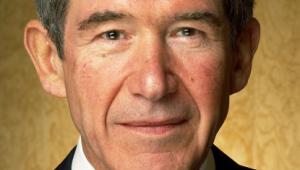By Richard Johnstone | 8 May 2013
Whitehall should be making better use of non-executive directors brought in from the private and voluntary sector, the chair of the Commons public administration select committee has said.
Contributing to a report published today by Insight Public Affairs, Bernard Jenkin said: 'There is a lack of clarity about the role of non-execs, not least because they have no fiduciary duties.
‘This leaves many wondering how they can contribute. In truth, they have a consultative and advisory role, which depends upon the willingness of ministers and their senior civil servants to involve them.’
Non-Executive Directors: a quiet revolution transforming Whitehall found that the 60 directors currently in post across 16 government departments had been used differently by different ministries.
Each director is a senior figure from the private or voluntary sector, appointed for three-year terms to offer strategic advice and scrutiny. Their role was expanded as part of the coalition government’s enhanced departmental boards initiative in 2010, which was intended to bring external expertise to government.
In total, there were 102 meetings of the enhanced departmental boards – where non-execs meet with relevant ministers and senior civil servants – in 2011/12, the report found. However, the Treasury held only one meeting, while the Department of Energy and Climate Change held only two.
The largest number of meetings was at the Department for Transport, where lead non-exec Sam Laidlaw undertook a review into the botched award of West Coast mainline rail franchise.
John Lehal, managing director of Insight, said this disparity indicated that changes could be made to help non-execs work more effectively, and ensure they were able to offer support.
Reforms should include requiring each to give evidence to the relevant departmental select committee every year and to produce their own annual report. Directors should also be more closely involved in the work of their departments, and should be required to meet staff regularly, particularly those outside Whitehall, to ensure greater engagement.
Much more could be done by the government’s non-execs, Lehal added.
‘It was notable that when [Transport Secretary] Patrick McLoughlin needed an urgent and independent assessment of the West Coast mainline franchising, he went to Sam Laidlaw, the Department for Transport’s lead non-executive director, to do the job.
‘Guidance states that non-executive directors should operate according to the recognised precepts of good corporate governance in business – namely leadership, effectiveness, accountability and sustainability.’





















